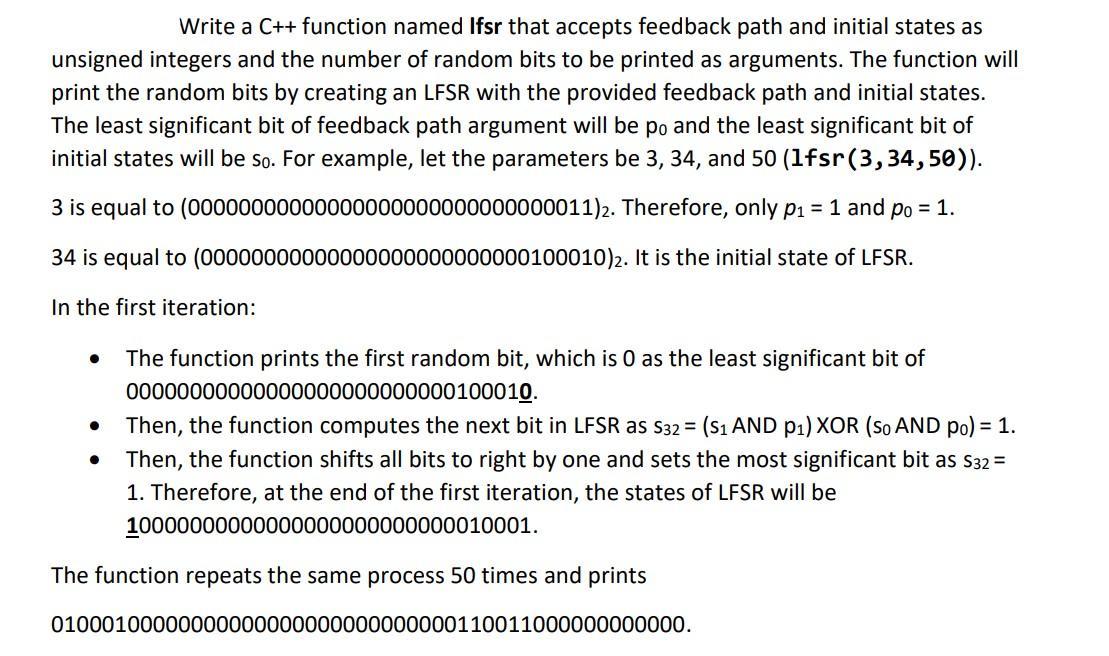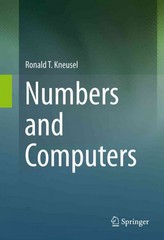Write a C++ function named Ifsr that accepts feedback path and initial states as unsigned integers and the number of random bits to be

Write a C++ function named Ifsr that accepts feedback path and initial states as unsigned integers and the number of random bits to be printed as arguments. The function will print the random bits by creating an LFSR with the provided feedback path and initial states. The least significant bit of feedback path argument will be po and the least significant bit of initial states will be so. For example, let the parameters be 3, 34, and 50 (1fsr (3,34,50)). 3 is equal to (00000000000000000000000000000011)2. Therefore, only p = 1 and po = 1. 34 is equal to (00000000000000000000000000100010) 2. It is the initial state of LFSR. In the first iteration: The function prints the first random bit, which is 0 as the least significant bit of 00000000000000000000000000100010. Then, the function computes the next bit in LFSR as S32 = (S1 AND P1) XOR (So AND po) = 1. Then, the function shifts all bits to right by one and sets the most significant bit as S32 = 1. Therefore, at the end of the first iteration, the states of LFSR will be 10000000000000000000000000010001. The function repeats the same process 50 times and prints 01000100000000000000000000000000110011000000000000.
Step by Step Solution
There are 3 Steps involved in it
Step: 1
Here is a C function named Ifsr that creates an LFSR Linear Feedback Shift Register with the provide...
See step-by-step solutions with expert insights and AI powered tools for academic success
Step: 2

Step: 3

Ace Your Homework with AI
Get the answers you need in no time with our AI-driven, step-by-step assistance
Get Started


